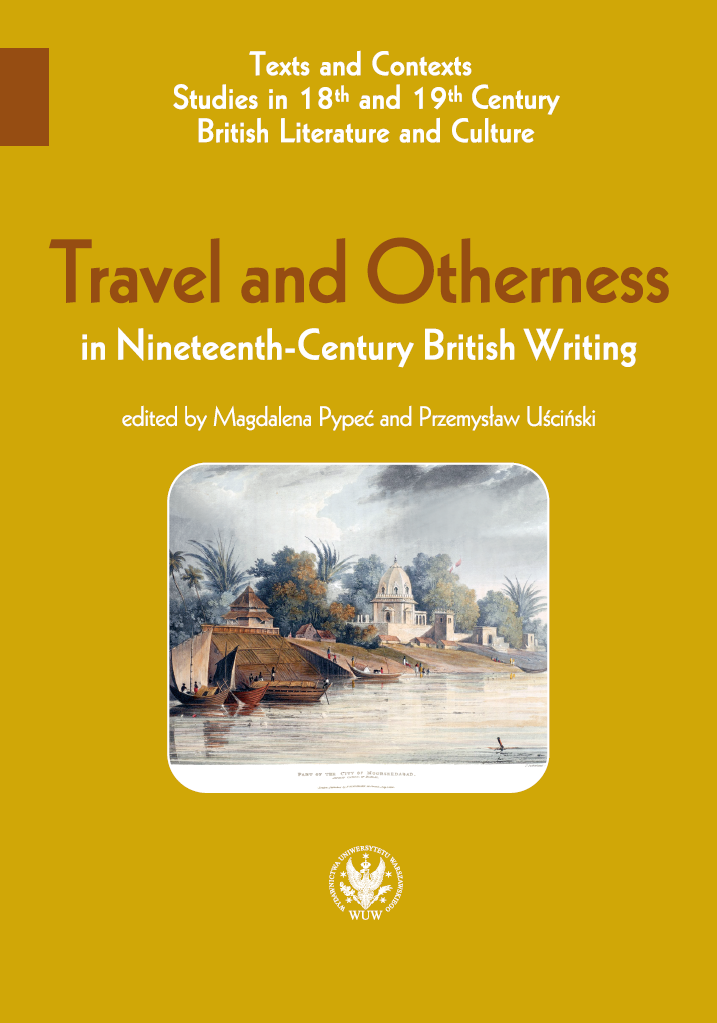Disappointment and Discovery
Disappointment and Discovery
Dickens’s Pictures from Italy in the Context of Travel Writings by Goethe and George Eliot
Author(s): Michael Hollington
Subject(s): Cultural history, Studies of Literature, Theory of Literature, British Literature
Published by: Wydawnictwa Uniwersytetu Warszawskiego
Keywords: travel writing; disappointment; discovery; Rome; Genoa; Carnival
Summary/Abstract: This essay explores the topos of disappointment and discovery in three major travel writings by significant authors in the European tradition: Goethe, George Eliot, Dickens. With reference in particular to Italy, the chief goal of many classic ‘Grand Tours,’ we find in each initial disappointment at regular intervals in the places visited, most particularly Rome, and in the case of Goethe and Dickens, most particularly with reference to its famous Carnival. George Eliot is examined first, and we find in particular in her case that the pattern is repeated, not only in Italy, but virtually everywhere: Antwerp, Cologne, Weimar. In the case of Goethe, who stayed nearly two years in Italy in the course of his travels, a whole process of Bildung and self-discovery takes place, particularly where two bites of the same cherry are possible, as with Rome. On his first experience of Carnival there, he exclaims sarcastically that “one has to see the Roman carnival to lose all wish to see it again.” But a blissful intervening experience of Naples and some double-takes in Sicily cause him to eat his words. Approaching it afresh, he recognises some of the meanings of the Moccoli rituals with which the Carnival concludes. The extinguishing of others’ candles now signifies for him the joyous celebration of the simultaneous destruction of the old and return of the new in spring. Dickens too came to love this festival after an initial rejection of Rome comparable to that of George Eliot. But the main disappointment/discovery motif in "Pictures from Italy" concerns Genoa, where to begin with he declares “I never was so dismayed in my life.” Drawing on an anti-Catholic tradition in English travel writing that goes back to Addison, he denounces the squalor and neglect that is rife in the city as a manifestation of the church’s indifference to questions of social welfare. But even at the outset, at a time when “I little thought I should ever come to have an attachment for the very stones in the streets of Genoa,” he begins a process of discovery in Italy that will lead eventually to a delighted appreciation of the Moccoli festival at Carnival: “anything so gay, so bright and lively as the whole scene there, would be difficult to imagine.”
Book: Travel and Otherness in Nineteenth-Century British Writing
- Page Range: 35-47
- Page Count: 13
- Publication Year: 2022
- Language: English
- Content File-PDF

